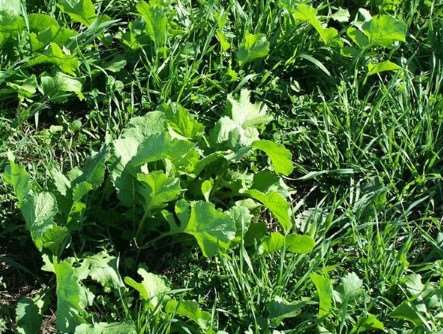The University of Minnesota Extension is sponsoring a workshop and tour highlighting the applied research for establishing perennial cover crop systems within a corn and soybean rotation. Farmers, ag professionals, government agency personnel and the public are invited to the Rosemount Research and Outreach Center for a tour of the latest in perennial cover crop agricultural research. University of Minnesota Extension specialists, USDA Agricultural Research Staff and University of Minnesota Staff will lead a guided tour of the Research Center's test plots, presenting their research on establishing perennial cover crop systems within corn and soybeans. The tour will stop for a picnic lunch at the new Whitetail Woods Regional Park.

The Field Day will be held Wednesday, August 24th, from 9:00 a.m. to 1:00 p.m. at the Rosemount Research and Outreach Center, 16975 Arkansas Ave, Rosemount (map). Workshop begins with morning refreshments and on-site registration at 8:30 a.m., bus leaves at 9:00 a.m.
The registration fee is $15.00 per person; Program materials and lunch are included in the registration fee. To reserve your spot, register online at http://z.umn.edu/august24 or contact Larisa Jenrich at 651-480-7732 or jenri001@umn.edu. Payment accepted includes check (payable to UMN).
From fall to late spring, driving across the upper Midwest tells a story of unproductive land: black soil, erosion, and nutrient loss. While the land during the remainder of the year produces a highly productive crop, this period of black soil presents short term losses to the farmer and long term impact to the environment. Traditional cover crops, while highly effective at mitigating such issues, typically add a cost to growers with minimal economic return. The goal of the University of Minnesota research, “Greening the brown period using managed perennial species,” is to develop a perennial cover crop system within a corn and soybean rotation. This will be done by manipulating tillage treatments with various perennial species to optimize cover while minimizing yield loss to the cash crop harvested in the fall. Designing such a system with perennials will allow for a continuous living cover across the landscape without the need to repurchase and replant cover seed each year.
The Field Day Research and Demonstration Stops will include:
- Agronomics of the kura clover living mulch system in field corn systems
- Cover crop establishment within established corn growing in a Minnesota climate
- Cash cover crops: Relay-cropping oilseeds in corn-soybean rotations
Source:umn.edu